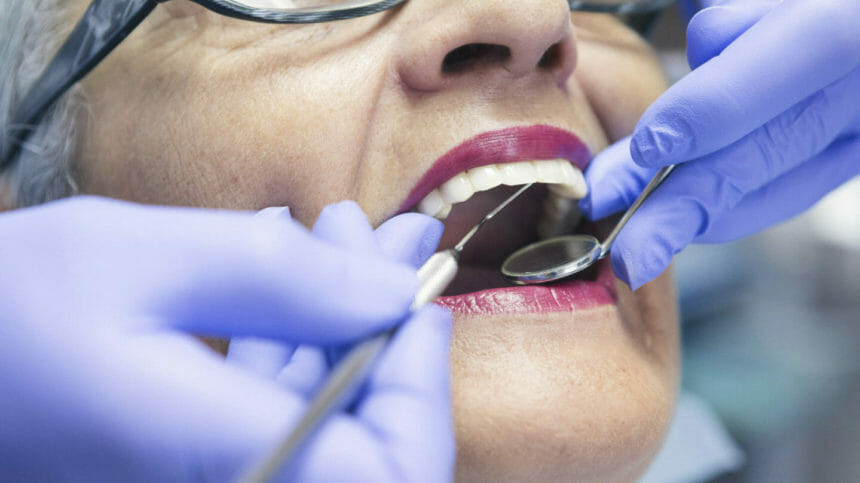
More than half of the antibiotics that dentists from the Department of Veterans Affairs (VA) gave to patients probably weren’t needed, according to a study published Tuesday in Infection Control & Hospital Epidemiology.
The researchers used data from the VA national electronic health record data in 2019. The team assessed antibiotics that dentists prescribed to patients based on appropriateness. Scientists used two definitions for appropriateness: a guideline-based definition dubbed “consensus” that was consistent with American Dental Association Guidelines for Dental Pain and Swelling, and American Heart Association Guidelines for the Prevention of Infective Endocarditis and an evidence-based definition that was labeled as “non-consensus.”
The team looked at a total of 92,224 antibiotic prescriptions that were related to 88,539 people at dental visits. Of the study participants, 67.8% were white and 90.6% were male. Additionally, 53.9% were medically compromised. The most commonly prescribed antibiotics were amoxicillin (given to 57.8% of the people) and clindamycin (prescribed to 11.2% of them).
Of the prescriptions, 30.9% were used to prevent complications in medically compromised patients, and 20.1% were for the purpose of preventing post-surgical complications. Those are two areas where professional guidance is lacking, according to the authors. Of the antibiotics that were prescribed, 17.5% were deemed concordant based on the consensus definition, and 64.3% were considered non-consensus concordant.
Race played a role in the prescription of inappropriate antibiotics. Those patients who were African American, Native Hawaiian or Pacific Islander, and Hispanic were more likely to receive unnecessary medications. In addition to giving unneeded antibiotics, the average time span for antibiotics prescribed was 8.3 days, which the authors said was excessive.
“Regardless of definition applied, antibiotics prescribed by dentists were commonly unnecessary,” the authors wrote. “Improving prescribing by dentists is critical to reach the national goal to decrease unnecessary antibiotic use.”



